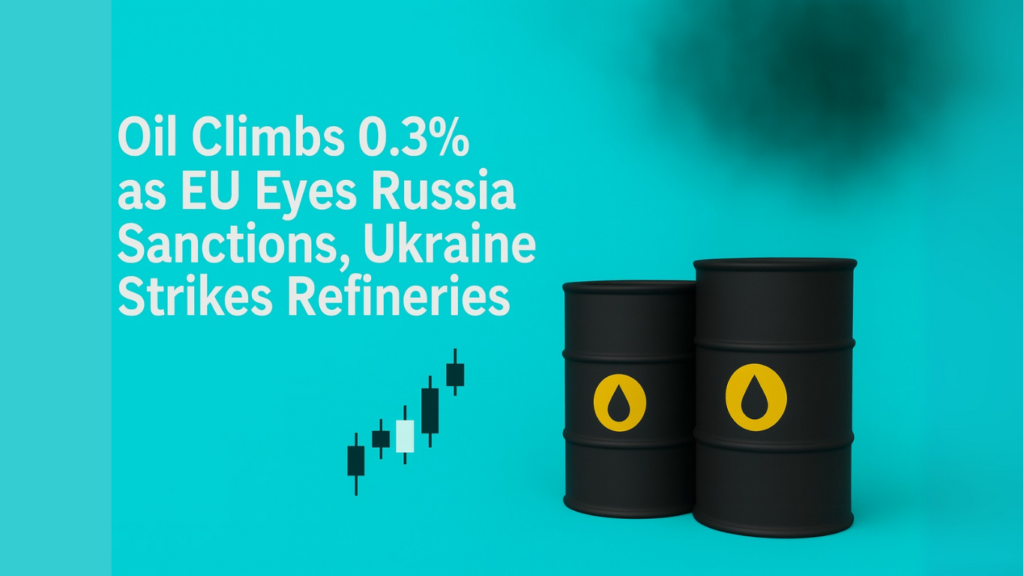Oil prices inched higher Monday, reversing last week’s losses as geopolitical risks resurfaced. Brent crude futures rose 0.2% to $66.79 per barrel, while West Texas Intermediate (WTI) gained 0.3% to $62.56 as of 04:55 ET (08:55 GMT).
The rebound follows a week where Brent slipped nearly 0.5% under pressure from calls by former U.S. President Donald Trump to lower energy costs. The renewed uptick comes as the European Union considers its 19th sanctions package targeting Russia’s energy trade.
The proposal, unveiled Friday, would penalize traders, refineries, and petrochemical firms in third countries—including China—that circumvent existing bans on Russian oil. Brussels also seeks to blacklist 118 vessels tied to Russia’s “shadow fleet” and move forward a ban on Russian liquefied natural gas imports, potentially enforcing it by January 1, 2027.
U.S. officials, echoing Trump’s stance, have pushed for harsher penalties on Russia’s major oil buyers, notably China and India, while urging Europe to accelerate its pivot away from Moscow’s supplies.
Ukraine Targets Russian Refineries
Energy supply risks escalated further after Ukraine intensified strikes on Russian oil infrastructure. On Saturday, drone attacks hit Rosneft’s Saratov refinery and the Novokuibyshevsk refinery in the Volga region.
- Saratov refinery capacity: 7 million tons annually
- Novokuibyshevsk refinery: Over 8.8 million tons annually
Both sites reported explosions and fires, raising concerns of tighter supply chains. Analysts noted that even temporary outages in refineries, terminals, or pipelines can significantly disrupt global crude flows and product exports, keeping prices underpinned.
Rising Geopolitical Tensions
Beyond Russia and Ukraine, broader geopolitical frictions added to the bullish backdrop. Over the weekend, four Western nations recognized Palestinian statehood, amplifying uncertainty in the Middle East, a vital hub for oil production.

Additional flashpoints included:
- Poland deploying fighter jets after Russian airstrikes near its border with Ukraine.
- Three Russian jets violating NATO-member Estonia’s airspace, sparking regional concerns.
- Germany’s air force intercepting a Russian military aircraft over the Baltic Sea.
With risks intensifying on multiple fronts, traders expect oil markets to remain volatile. While price gains were modest Monday, sustained geopolitical shocks could tighten supply margins and support higher crude benchmarks in the weeks ahead.


